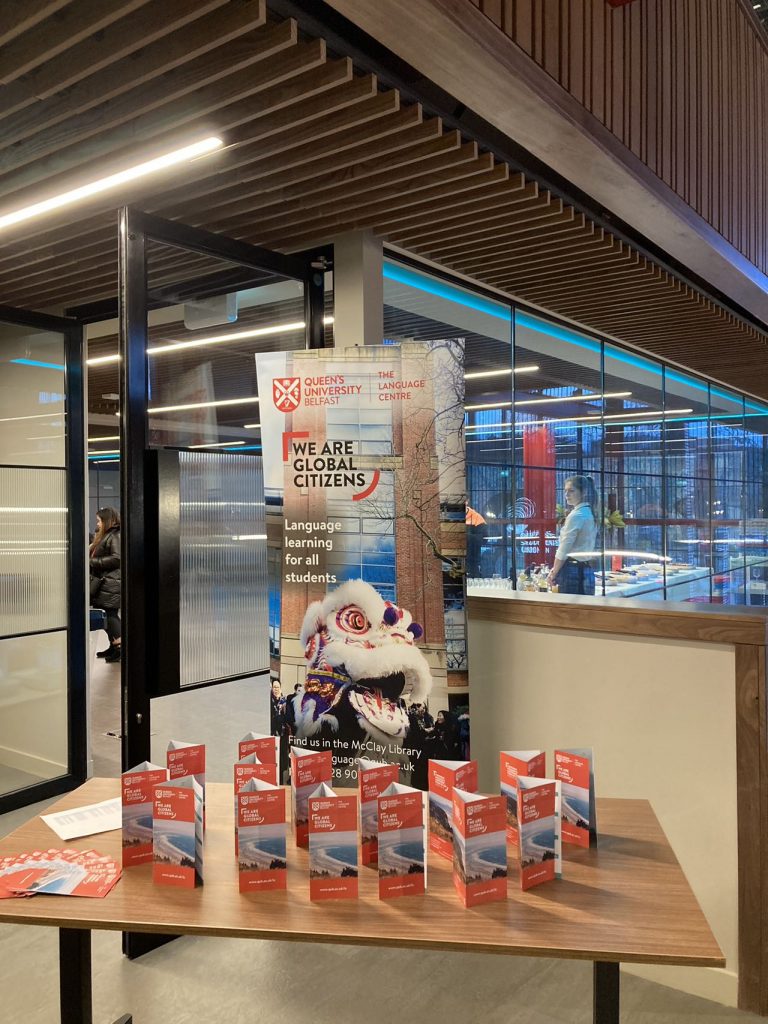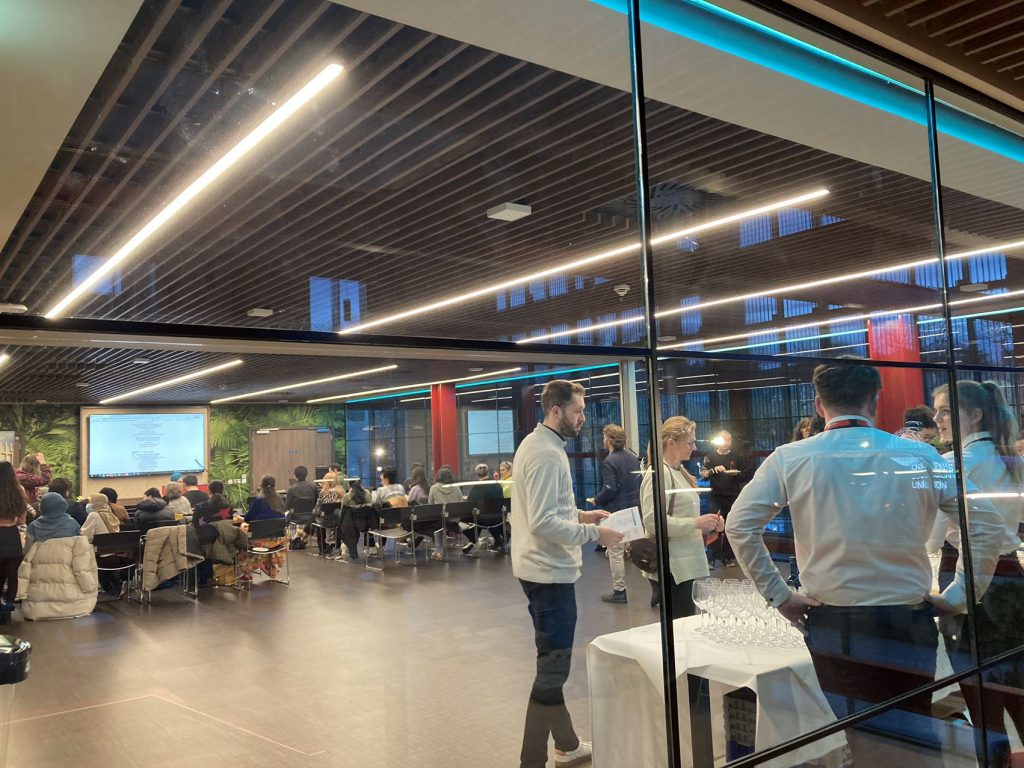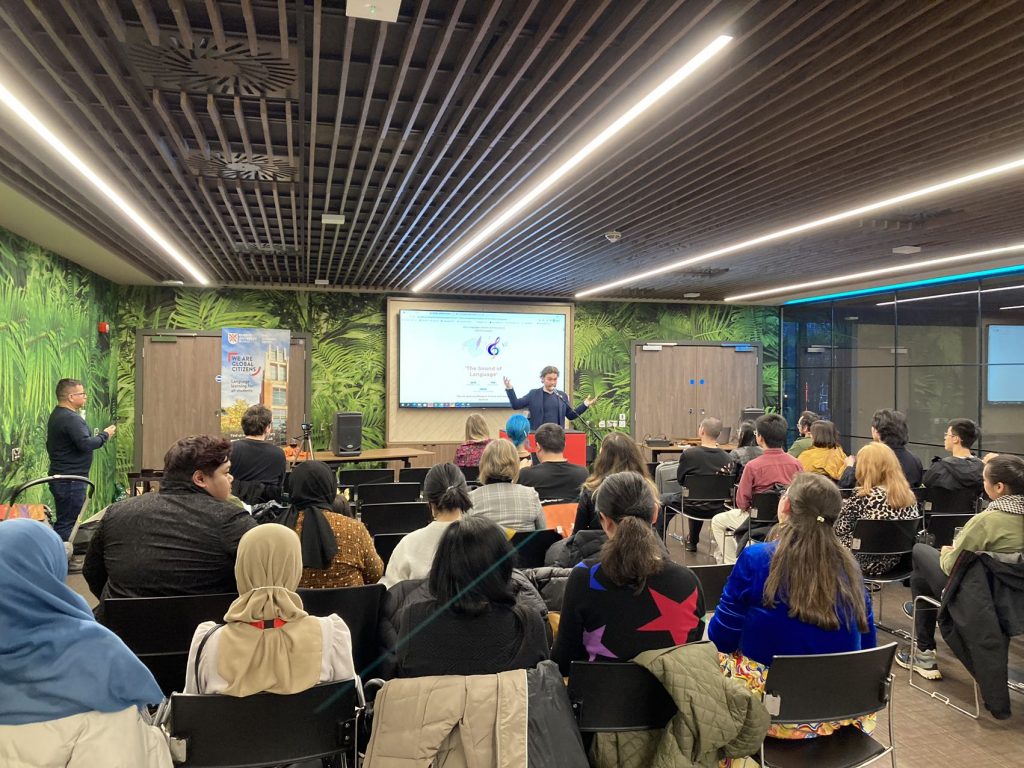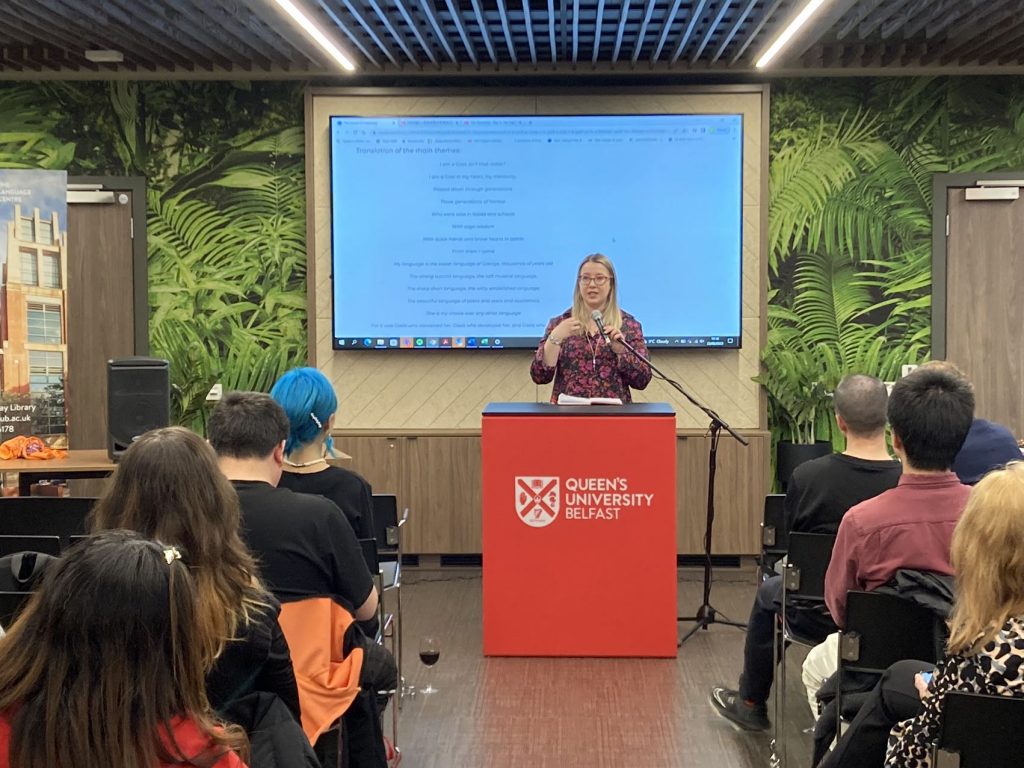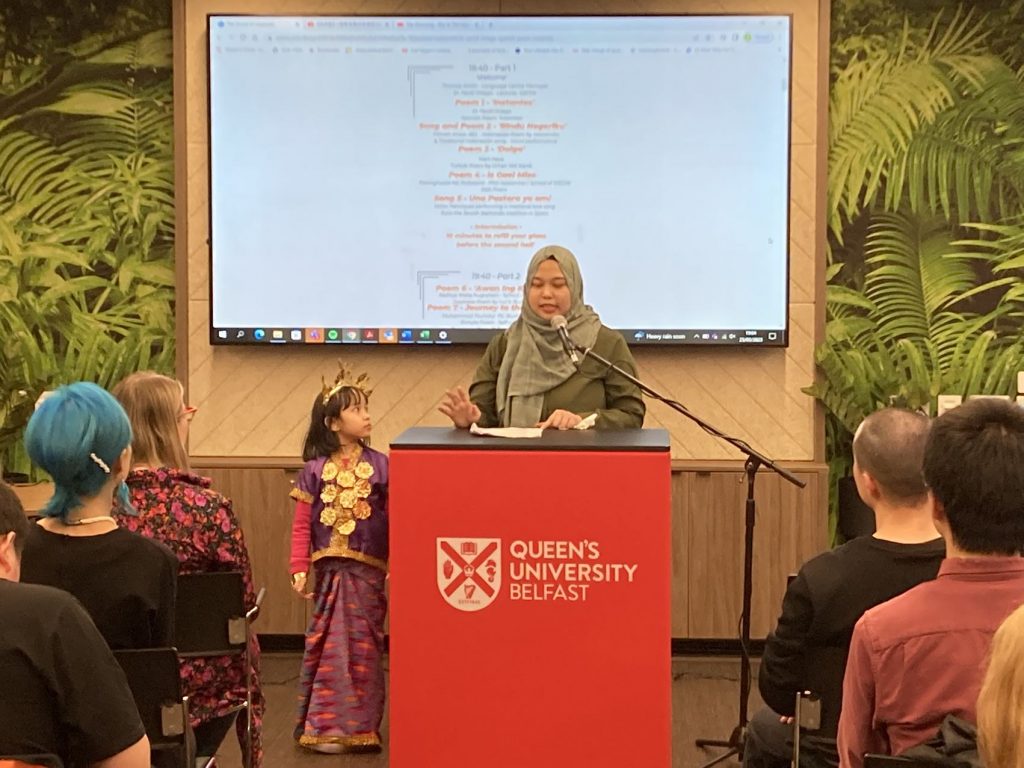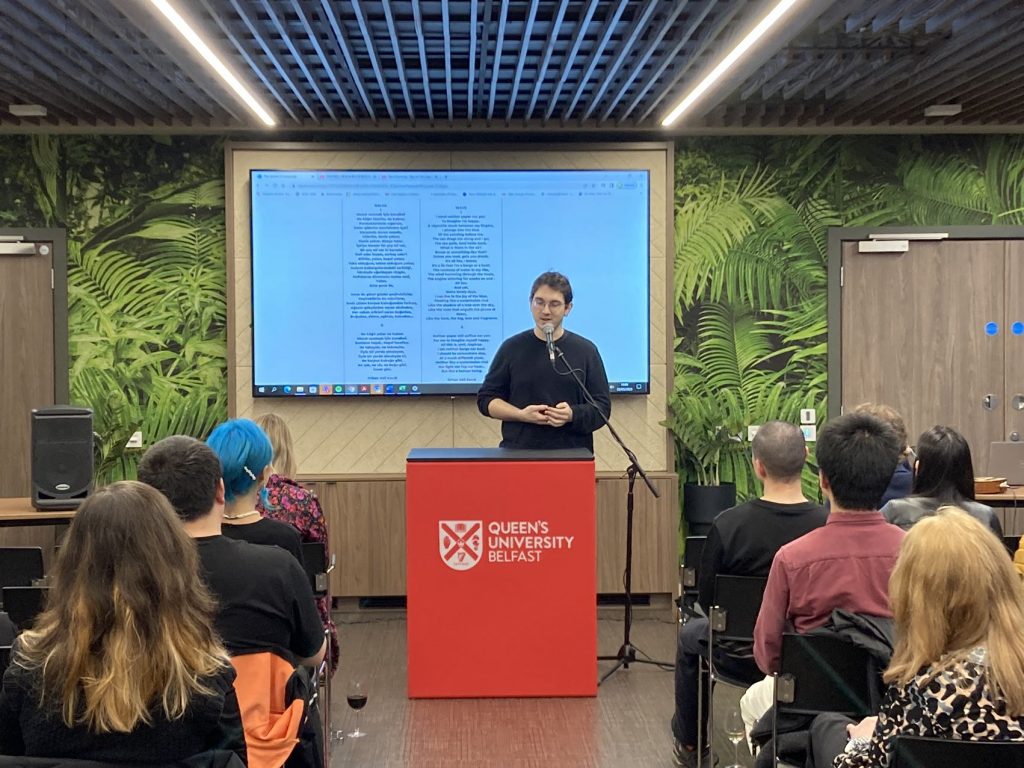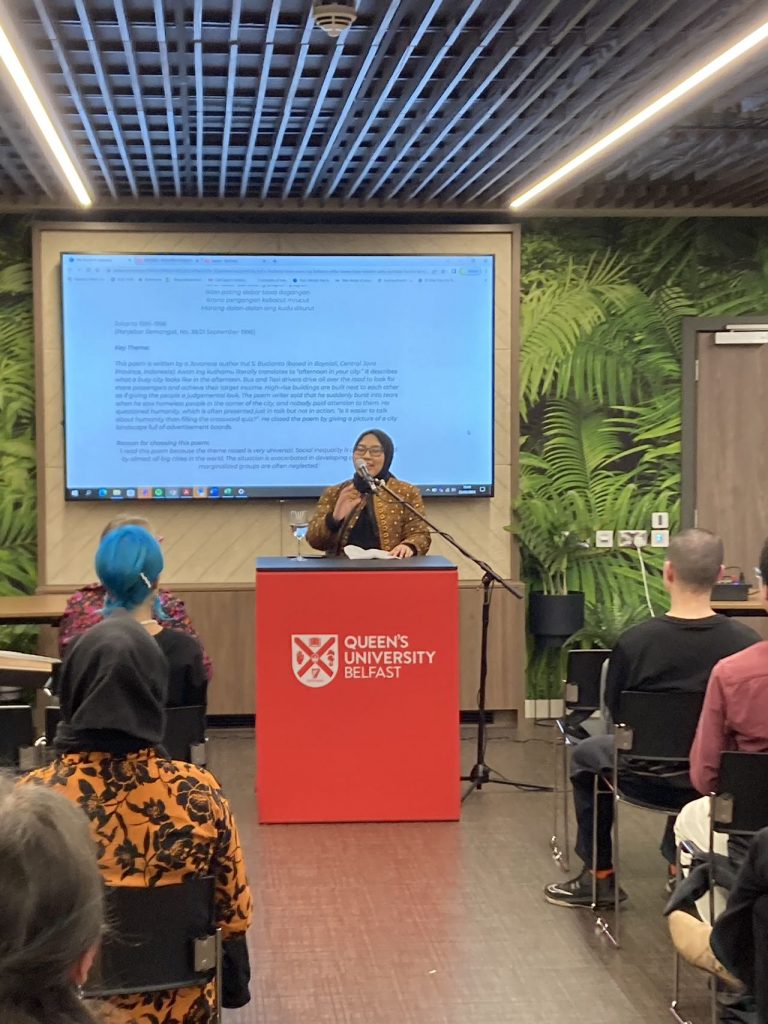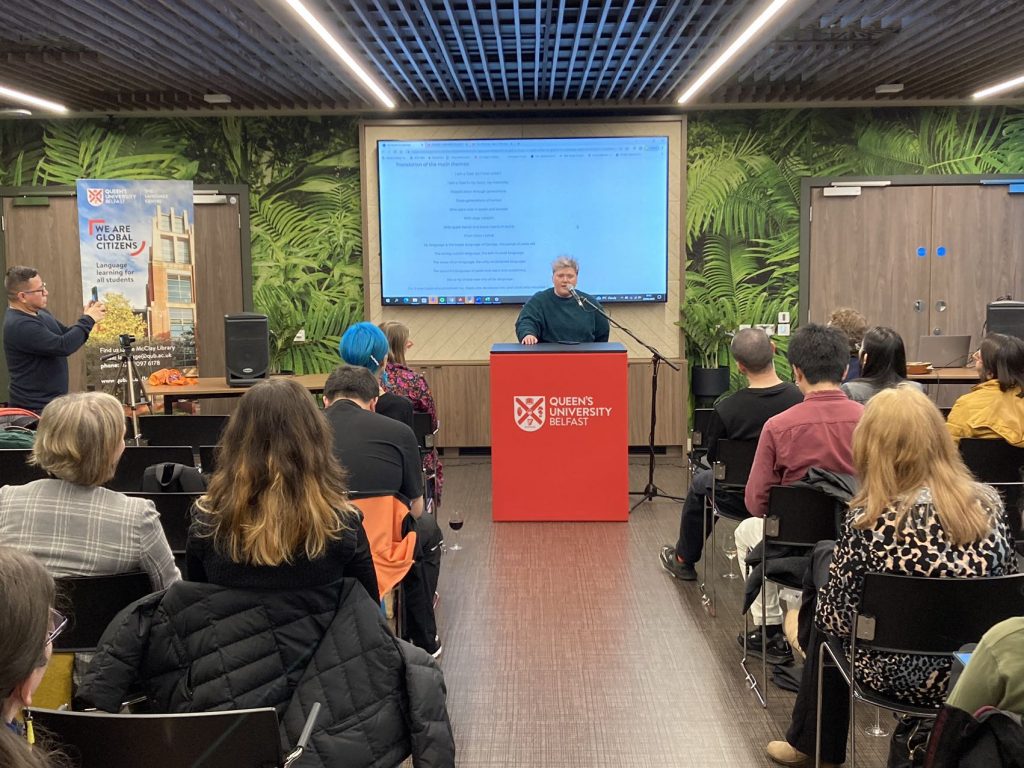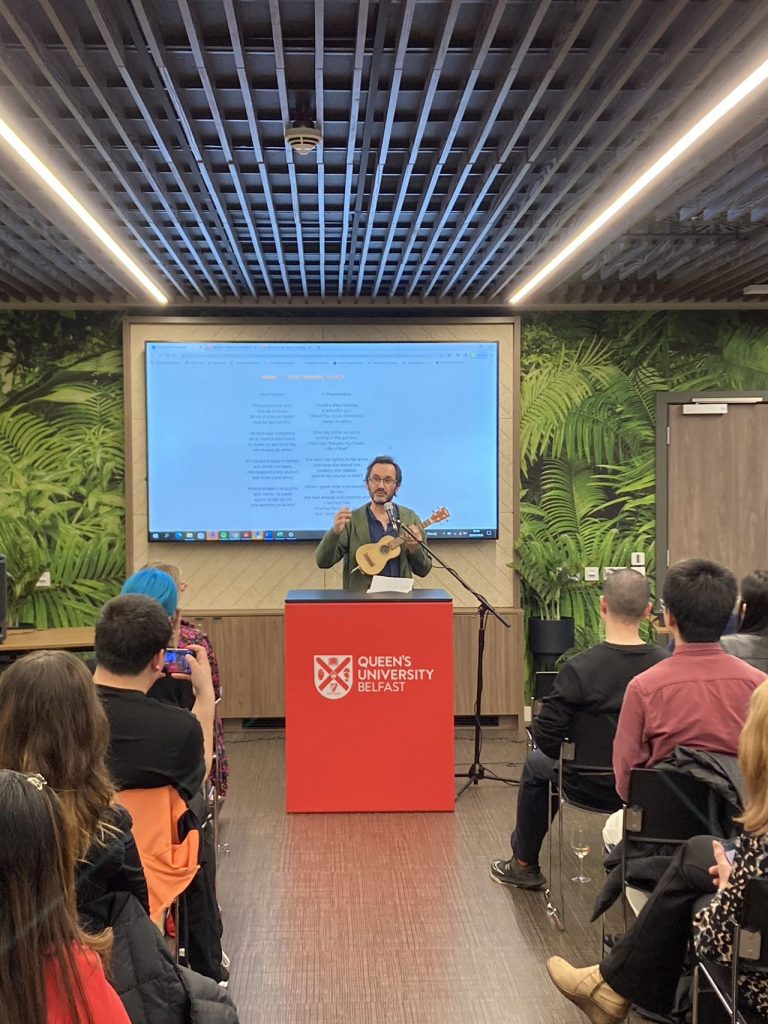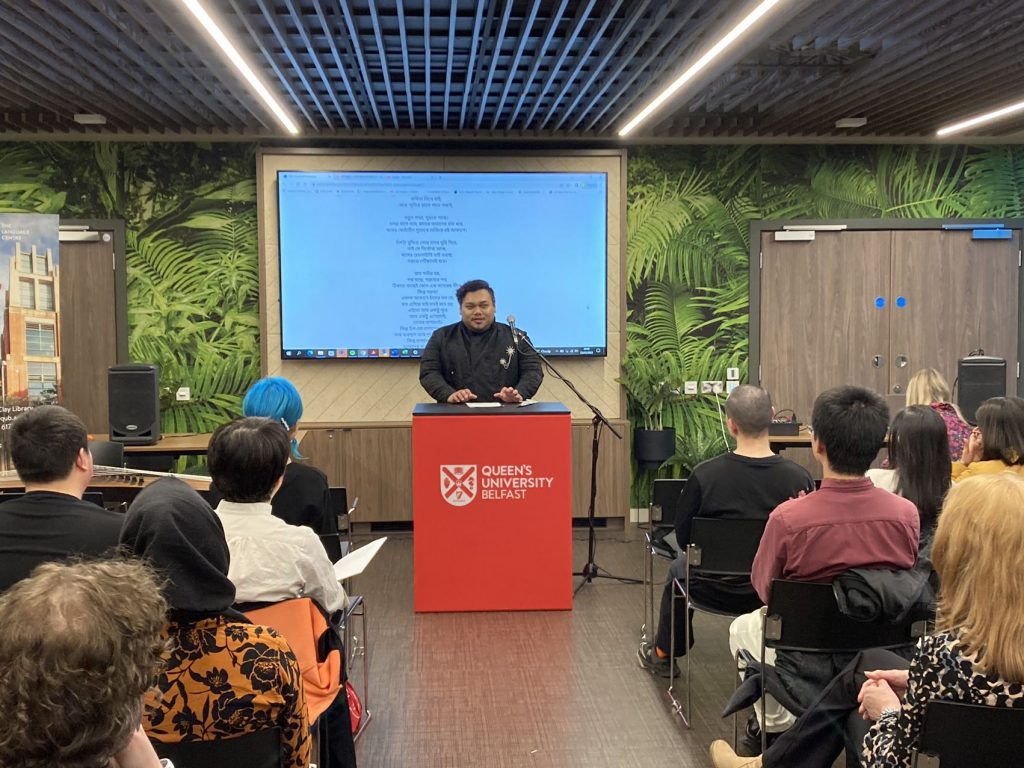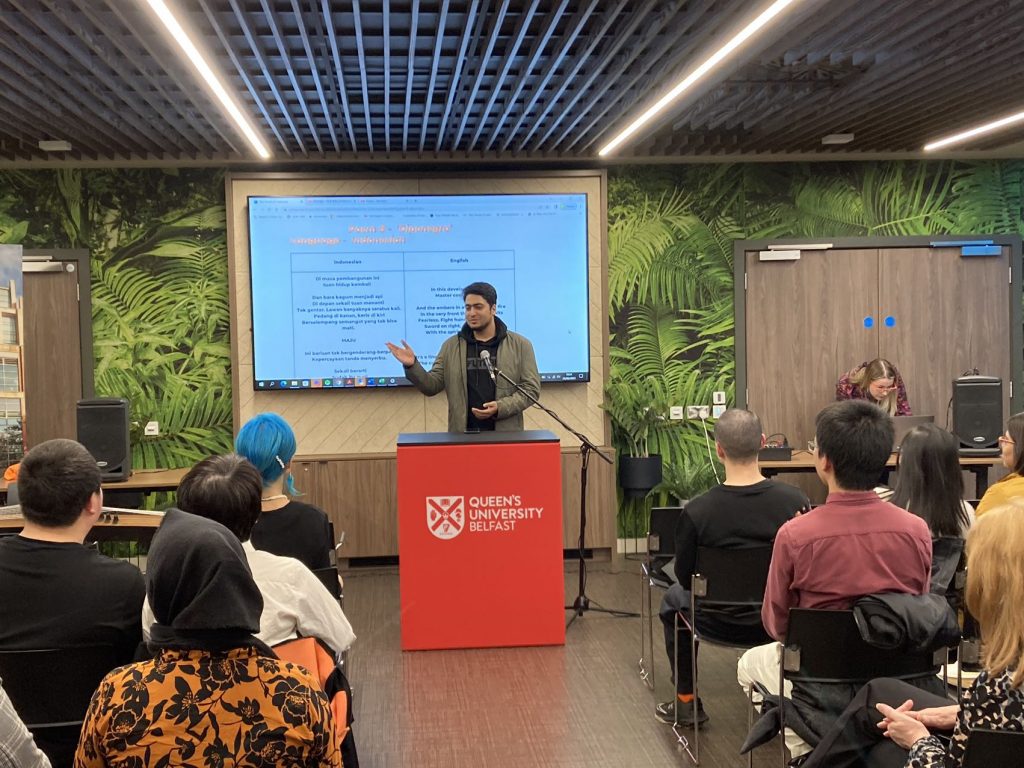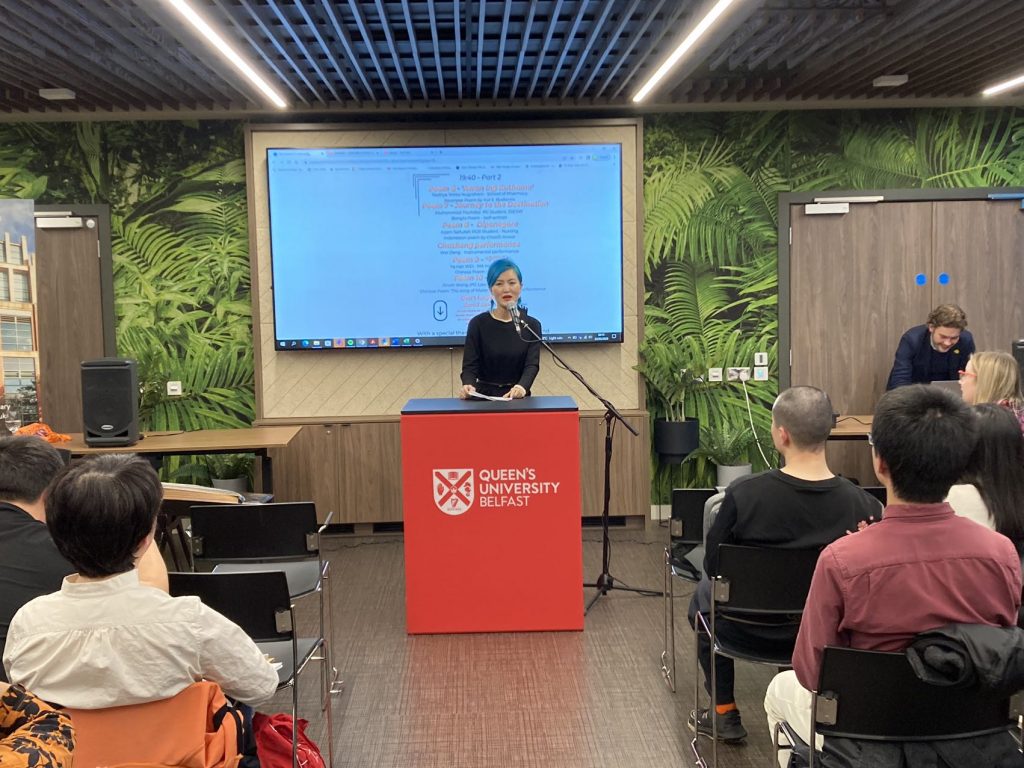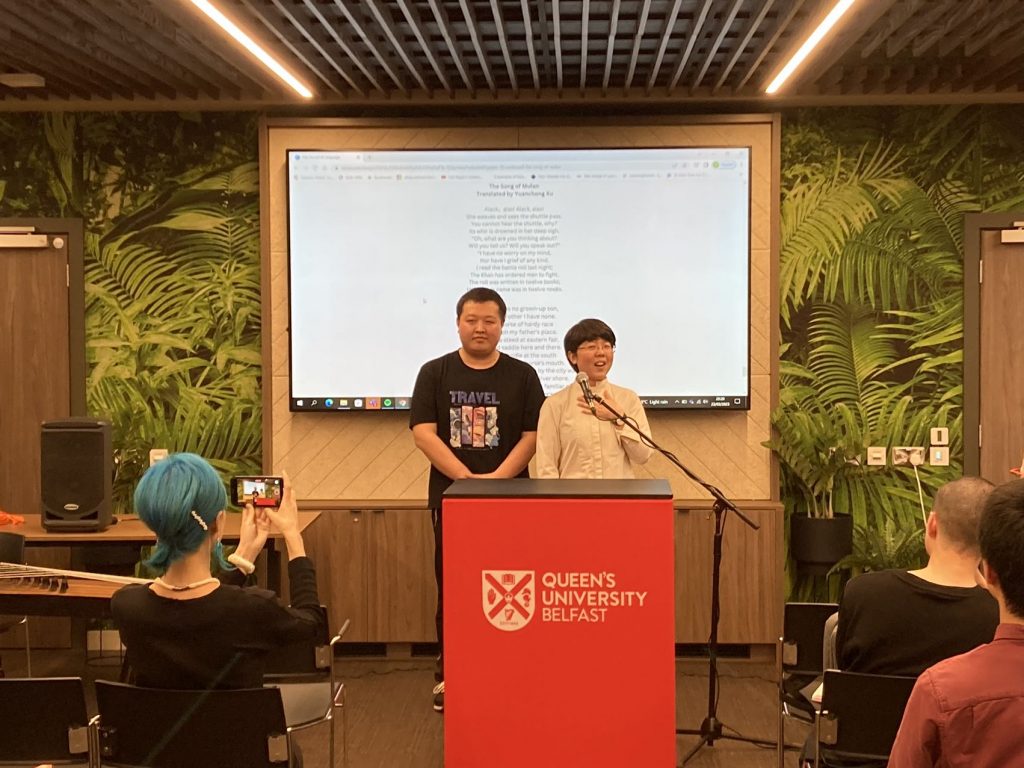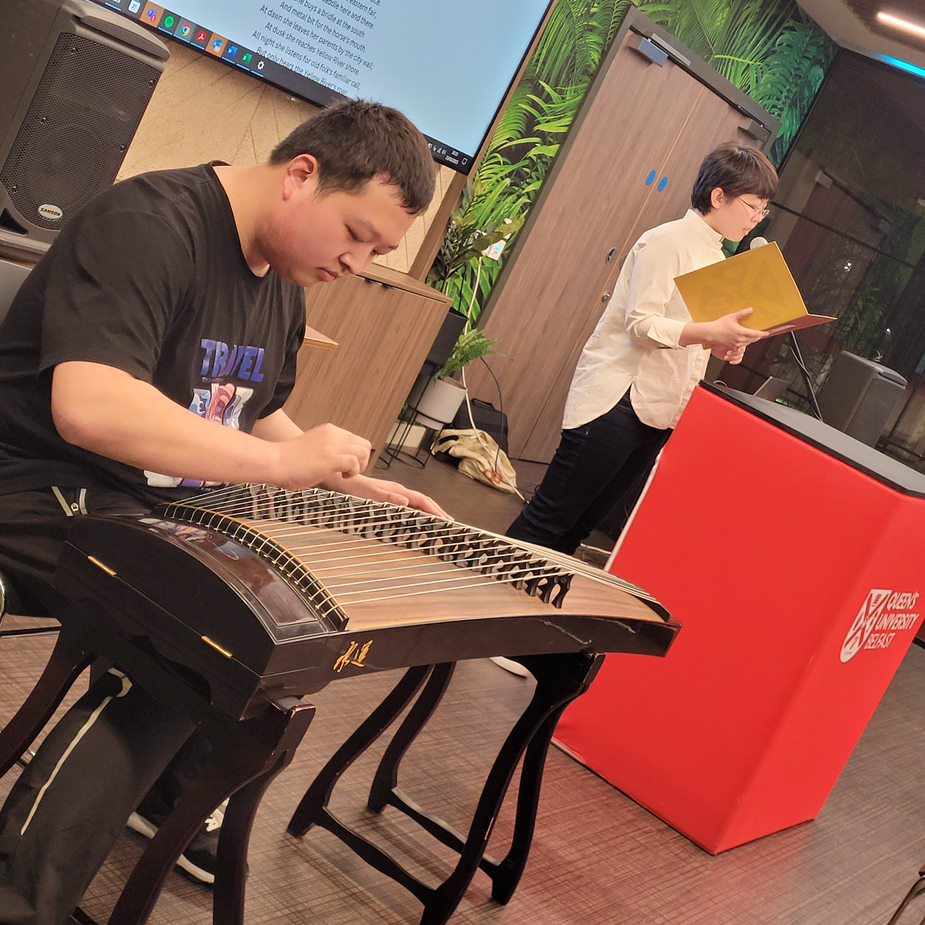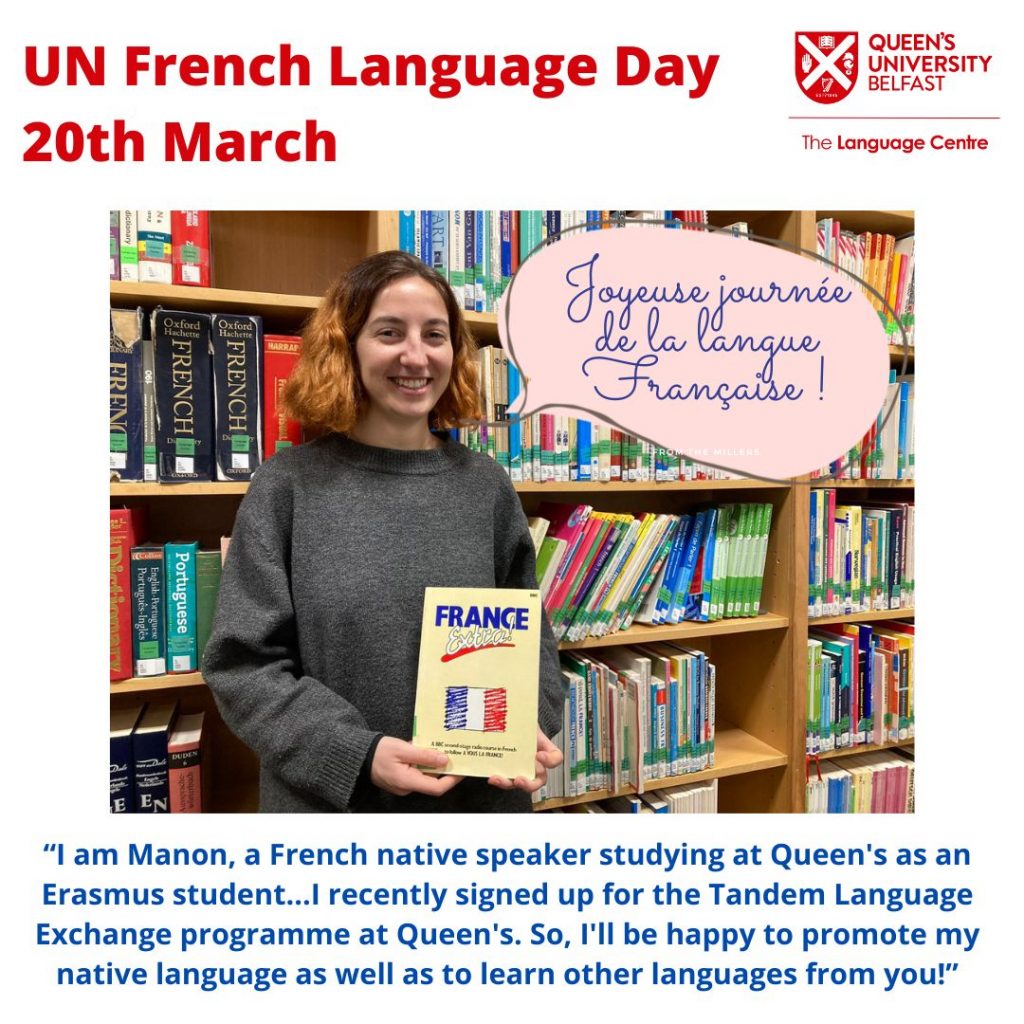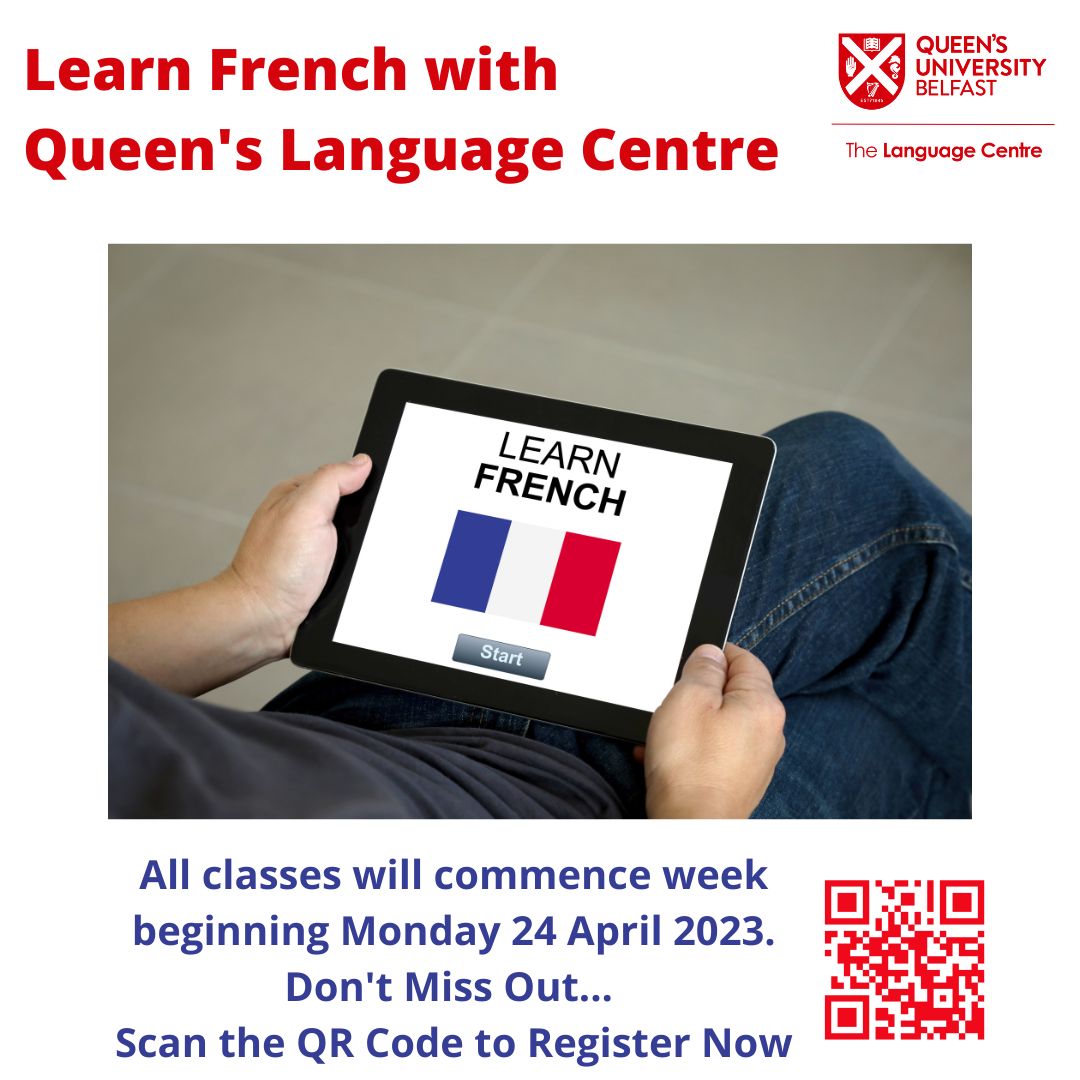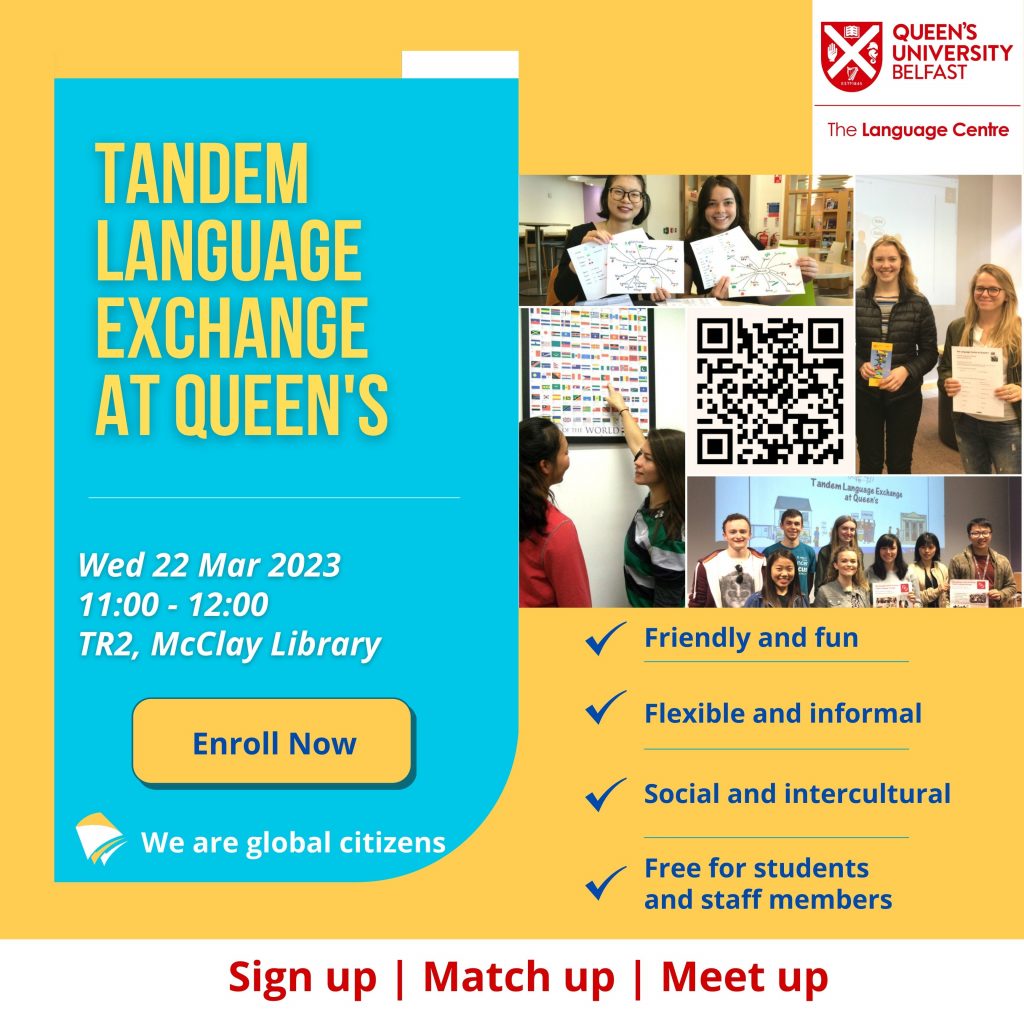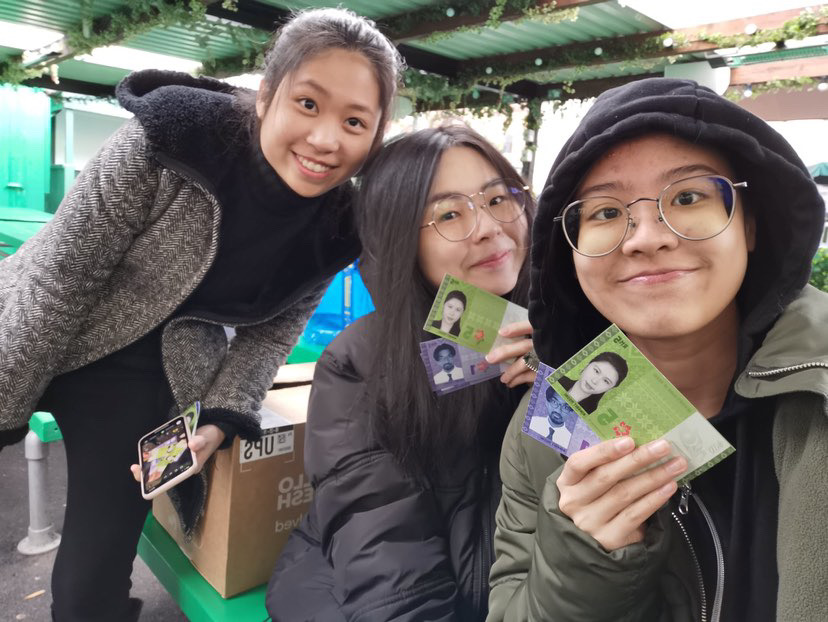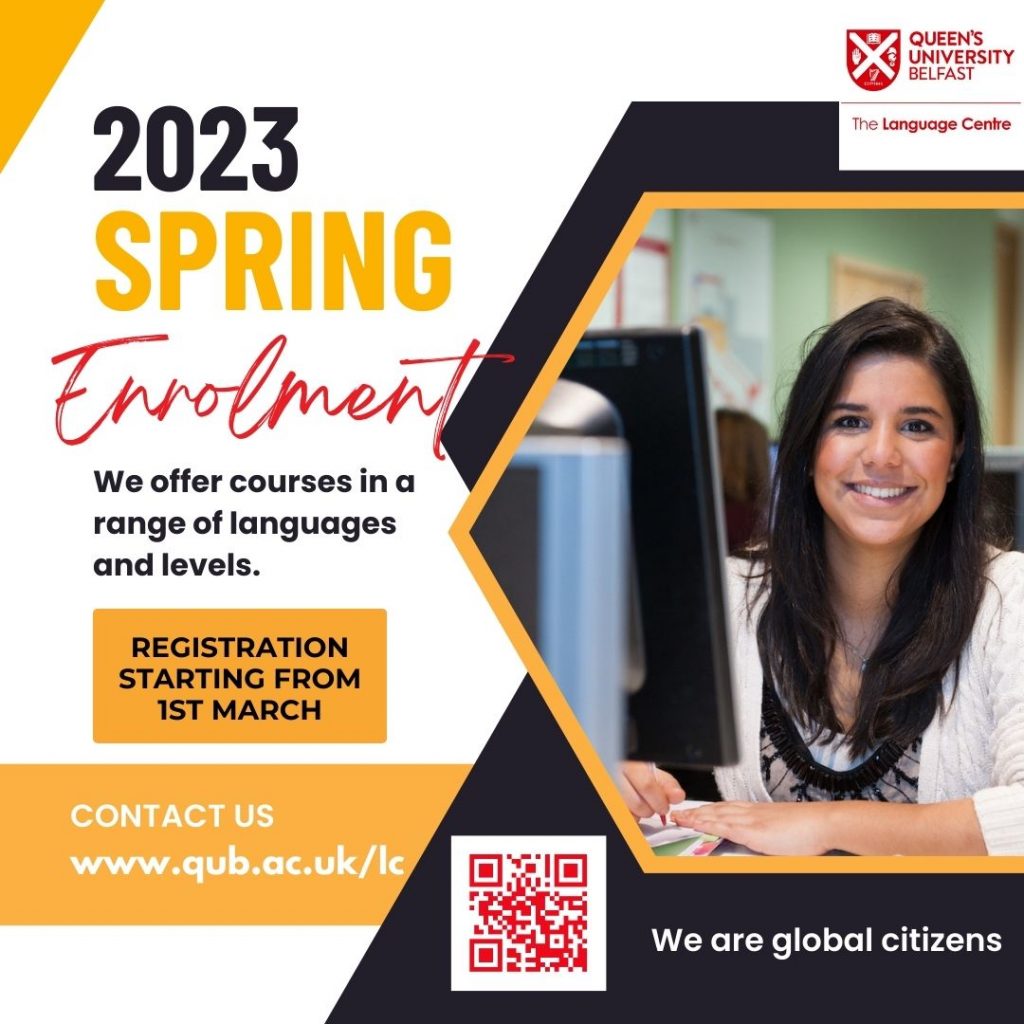I was fortunate enough to be on the organizing committee for QUB inaugural Multilingual Poetry and Music Festival and to act as a compère for the event, which took place on Thursday 23rd March. I was hugely encouraged both by the high level of interest shown by students and the positive response from attendees on the night. Below is a blog I have written about the event.
Thomas Smith, manager of the Language Centre, begins by welcoming everyone to this inaugural Multilingual Poetry and Music Festival and explaining the motivation behind the event; that it was inspired by an event run by Dr Yecid Ortega in Toronto. He also expresses his hope that the evening become an annual event, uniting QUB students and staff.
Dr Yecid Ortega, a lecturer in SSESW and a fellow organizer of the event, then gets up to address the room, advocating for collaboration and empathy. He argues for recognition of the equivalence of each language and calls us to celebrate the beauty of cultural diversity and plurilingualism. He explains that the emphasis is not on understanding every word that is read, but on hearing the language and the emotion behind each reading.
Yecid kicks off proceedings with a Spanish poem, entitled “Instantes”. The poem is an ode to living life for the moment, and Yecid’s reading is impassioned and earnest.
Second to take to the floor is PhD student Fithrah Ansar, who reads a poem in Indonesian, entitled Rindu Negeriku, prefaced by a mesmerizing and highly emotive vocal performance. The poem is about homesickness, and Fithrah relates this to the experience of Queen’s international students, who find themselves far away from friends and family and the comforts of home culture. She is accompanied on stage by her daughter, who is wearing traditional Indonesian dress.
Mert Hava, a postgraduate researcher in SSESW, is the third presenter of the evening, reading a poem in his native language of Turkish. Mert explains that the poet, Orhan Veli Kanik, is very special to him, as he was first introduced to poetry through his poems, which tend to focus on everyday life.
Next to approach the microphone is PhD researcher Fionnghuala Nic Robeaird, who has chosen to read an Irish poem she was taught in secondary school. She explains that, at the time when she was introduced to it, she felt embarrassment and self-consciousness when speaking Irish. The poem is a celebration of the Irish language and culture, and Fionnghuala’s reading is confident and filled with pride, echoing Fithrah’s earlier contribution.
Victor Henriquez, a tutor in the school of AEL, who played some beautiful background music on the ukulele to open the event, gets up to play a medieval love song sung in the Sephardic Jewish tradition. He talks briefly about the systemic expulsion of this community in 1492 and Christopher Columbus’s simultaneous discovery of Spain. The song, Una Pastora Yo Ami, is from the perspective of an older man, who recalls his experience of being in love with a shepherdess in his youth. Victor’s own arrangement of the song is beautiful and perfectly reflects the haunting lyrics.
A brief intermission follows, during which attendees refill their glasses, grab some food, and continue conversations begun before the event started.
First up after the interval is Raditya Weka Nugraheni, a PhD student in Pharmacy. Her poem, entitled Awan Ing Kuthamu, which Raditya explains translates literally as “afternoon in your city”, is Javanese. The poem is a commentary on city life, in which the writer questions humanity, when it is the case that people can walk past homeless people on the street, without interacting or acting. The poem highlights the juxtaposition of wealth and privilege with poverty and destitution. Raditya’s dynamic reading evokes brilliantly the anger and despair of the writer.
Muhammad Touhidul, a postgraduate student in SSESW, is next to present his self-penned Bengali poem, which translates as “Journey to the Destination”. He speaks about his inspiration for the poem (travelling on a bus from Dublin to Limerick with his wife). This journey led him to reflect on the journey his life had taken to this point and to remark upon how far he has come. The poem is about that journey and about how important it is to soak up the good moments in life, spent with those closest to us. The poem is heartfelt and evocative.
Another Indonesian poem follows Muhammad’s reading. This time it is recited by Azam Saifullah, who is a PGR student in Nursing. It is called Diponegoro and is a call to action in a time of war. Azam’s delivery is passionate and powerful, and attendees fall silent, as his words transport them to another place of combat and consequence.
We are then treated to a performance by Wei Deng on the guzheng, a Chinese traditional musical instrument. The audience are hypnotized by the beautiful melody that emanates from the sound board, created so deftly by Wei.
Yanan Wei, who is completing an MA in Interpreting, is the penultimate contributor to the event. Her Chinese poem, entitled “Chinese”, is read over a popular Chinese piece, which is played over the speakers. The melody is arresting in its beauty and is the perfect accompaniment to a poem which is a tribute to the beauty, richness and power of the Chinese language. Read with pride, Yanan’s performance is absorbing.
The concluding performance of the night comes from Xinxin Wang and Dai Yi, two PG students from the School of Law. The poem they have chosen to read is entitled “The Song of Mulan”, and tells the story of Mulan, who disguises herself as a man, to take the place of her elderly father in war. Firstly, Dai reads the Chinese original and then Xinxin reads the English translation, while Dai plays the guzheng. The accompaniment is captivating and the melody gains momentum, in tandem with moments of tension in the poem, such as when Mulan sets off to fight.
The evening, which has been filled with hope and positivity, draws to a close. Thanks to the efforts and talent of the student performers and the support of attendees, the inaugural Multilingual Poetry and Music Festival has been a real success. Let’s hope it becomes an annual event.
Dr Poppy Boyd, Language Support Officer, Language Centre

